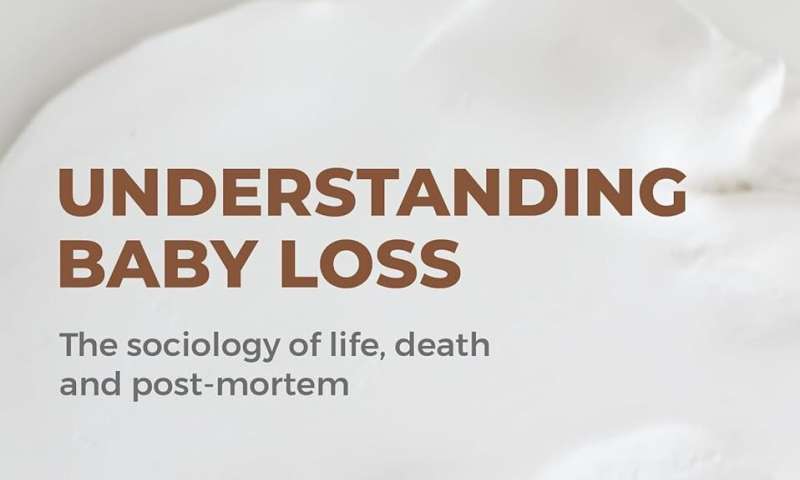Baby loss book sheds light on sensitive issue

The University of Huddersfield's Dr. Julie Ellis has co-authored a new book that examines the challenging subject of baby loss and addresses issues faced by both parents and professionals around the issue.
"Understanding baby loss—The sociology of life, death and post-mortem," published by Manchester University Press, was co-authored with Professor Kate Reed of the University of Sheffield, who led a study about experiences of early-life loss and the impact of medical imaging on pediatric post-mortem along with fellow co-author and radiologist Dr. Elspeth Whitby, also from the University of Sheffield.
In particular, this new book assesses how magnetic resonance imaging (MRI) technology can be used for minimally-invasive post-mortems, which may help bereaved parents to agree to a procedure that is often a traumatic decision to make during an already devastating period.
Heralding unsung work around a devastating loss
The book examines how parents experience different forms of baby loss, and sheds light on the unheralded care and sensitivity shown by health care professionals involved in the process after a baby dies. It is hoped this will help parents when making decisions about whether to consent to a post-mortem for their child.
"We were interested in how professionals involved in baby loss or early child death were navigating new technological changes like the use of MRI," states Dr. Ellis. "But from the start of the project, we were also very keen to contextualize it in a broader experience of loss.
"We wanted, if possible, to understand how parents who have lost a baby or a very young child remembered them, and also how their encounters with professionals during this traumatic period helped them cope."
The book draws upon findings from the ESRC research which evolved into Remembering Baby, a creative exhibition that appeared in four locations around England and explored parental and professional encounters with death at the start of life.
Parents and professionals
"This book is the story of that research, and those parents and professionals who shared their experiences with us," Dr. Ellis adds. "The professionals included many who can be part of the process including police officers, hospital chaplains, midwives and bereavement support workers.
"One of the things that the project illuminated was the hidden work that goes on in a mortuary, and the sensitivity of the staff in what we called their care practice. Staff would sing to babies, choose particular outfits to dress them in or make sure there were toys with the babies."
Provided by University of Huddersfield